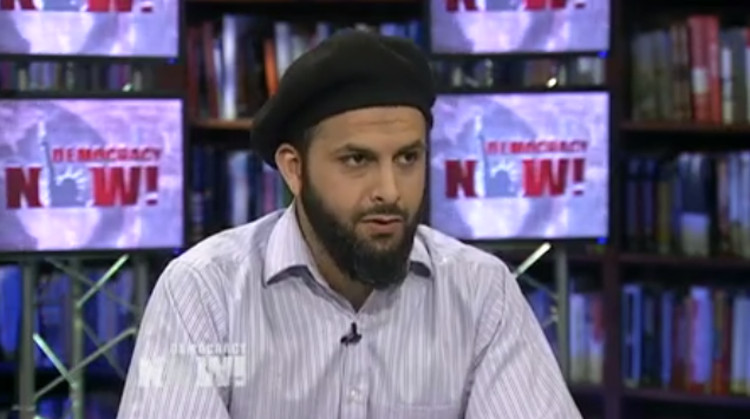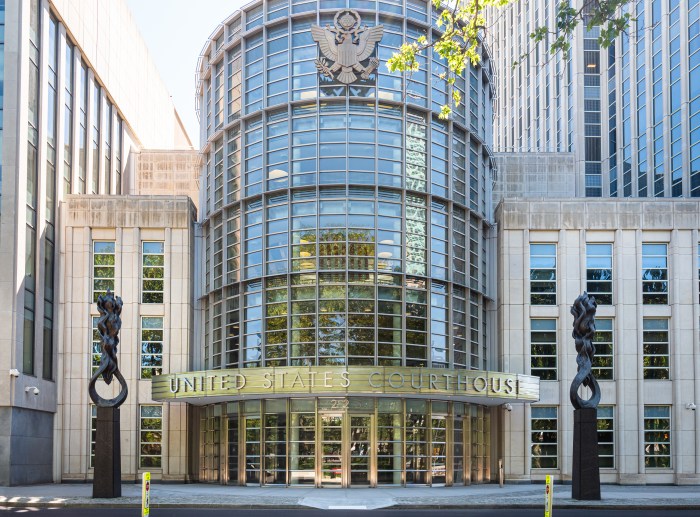Four Muslim Americans have filed a lawsuit against the FBI claiming their names were added to the government’s secretive No Fly List and allegedly coerced to spy on their own communities, and told their names would be scrubbed if they cooperated.
The Center for Constitutional Rights, along with the City University of New York School of Law’s CLEAR project, filed an amended complaint on April 22 on their behalf, arguing that the men are innocent and pose no threat to aviation security. The suit also notes that one of the men was alienated and stigmatized after his relatives and acquaintances were allegedly approached by government agents and questioned.
In the suit, they claim their clients were deprived “of their right to travel freely and wrongly stigmatized…without justification and without due process of law by placing them on the No Fly List.”
Since their inclusion on the mostly-secret list, one of men has been unable to travel to see his 93-year-old grandmother, and another has gone five years without seeing his wife and three daughters, according to the court filing.
The four men—Muhammad Tanvir, Jameel Algibhah, Naveed Shinwari and Awais Sajjad—either suffered economic losses or emotional distress due to the FBI’s unwarranted questioning, the suit claims.
In an interview on Democracy Now on Thursday, Shinwari said his first interaction with government agents occurred in October 2011 when he was denied a boarding pass in Dubai after spending several months in Afghanistan—where he got married. Shinwari, who lives in West haven, Conn., said he was interrogated by two FBI agents for roughly four hours.
“I was pressured to give them everything that I know in order to go back home,” he told the program. “And the more I give them, the better chance of me coming back home.”
He also refused a lie detector test because “I was very truthful to them from the beginning,” he added. He was questioned again five days later after returning to Washington, D.C., the suit states.
In March 2012, Shinwari alleges he was prevented from boarding a flight to Orlando, Fl., where he had found a job. According to the suit, agents approached him and said “they were aware of his inability to board his flight, and again asked him to work as an informant.” He refused.
In his interview with Democracy Now, he recounted his experience with government agents.
“Tell us everything,” they allegedly demanded. “Where have you been? Have you attended any training camps in Afghanistan?”

A second plaintiff, Awais Sajjad, of Brooklyn, a convenience store employee, was approached by two FBI agents at the check-in counter of John F. Kennedy International Airport in September 2012, where he was attempting to board a flight to Pakistan so he could visit his ailing father and elderly grandmother.
He was allegedly brought to a windowless interrogation room and was later told by agents that his inclusion on the FBI No Fly List prevented him from traveling.
“They asked him for his best friends’ names, and whether he had any girlfriends,” according to the suit. “He was asked whether he had any military training or ever sought to enlist for terrorism training. Mr. Sajjad answered all of their questions truthfully. He told them he had never had any kind of training and had never been in trouble with the law.”
During the alleged interrogation, three agents reassured Sajjad that “they would be willing to help him get off the No Fly List and gave him the impression that such assistance would be provided if he agreed to their requests,” the suit states.
One month later, after visiting Sajjad’s sister house in New Jersey, agents told Sajjad they wanted him to work for them in exchange for U.S. citizenship and a salary, according to the suit. He declined.
He was later brought to FBI headquarters in Newark where he underwent a polygraph test, which he failed.
“Mr. Sajjad was very frightened. He did not know what a polygraph test was. They attached multiple wires to different parts of his body,” the suit alleges. “He was told to remain very still and not even move his eyes, and to answer their questions. They then asked him many questions, including whether he loved the United States of America, whether he loved Pakistan and whether he would ever do anything that might bring shame to his family. They also asked whether he had signed up for or taken military training in Pakistan and whether he had ever used any guns.”
The suit criticizes the FBI for the lack of transparency regarding the No Fly List. The government has not published the criteria for inclusion on the list, the suit says, adding that to be nominated for the list, there is supposed to be “reasonable suspicion” that the person is a “known or suspected terrorist.”
It is unknown how many people are currently on the No Fly List. The government’s main terrorist watch list ballooned to at least 700,000 people, the New York Times reported last November.
In the suit, the four men are seeking removal from the list and monetary relief for damages they have suffered.
The latest allegations follow a string of lawsuits and complaints against the government and the NYPD for what many in the Muslim community consider unwarranted surveillance, which picked up following the Sept. 11, 2001 terror attacks.
The NYPD’s top brass this month disbanded the controversial Demographics Unit, which spied on Muslims in the city and across its borders for about a decade. Many are skeptical, however, that the department has altogether discontinued covert actions against Muslim Americans.
In an email on Friday, the FBI declined to comment for this story.
































